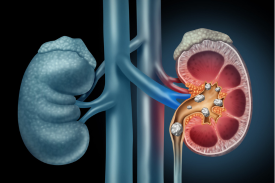Prostate Cancer Warriors: Navigating Treatment Options with Knowledge
Men all over the world are affected by prostate cancer, which is a serious health issue. People who receive a prostate cancer diagnosis transform into warriors, equipped with the knowledge and skills necessary to make wise choices regarding their course of treatment. The various prostate cancer treatment options will be thoroughly discussed in this blog post, enabling patients to make informed decisions about their options.
Understanding Prostate Cancer:
The prostate gland, a tiny organ with the appearance of a walnut that produces seminal fluid, is where prostate cancer develops. Age, family history, and specific genetic mutations are all risk factors for this cancer, which is the most prevalent among men. Regular screenings are crucial for the early detection of prostate cancer because early-stage cases may not show any symptoms.
Treatment Options for Prostate Cancer:
Active Surveillance:
For cases of low-risk prostate cancer, active surveillance, also referred to as watchful waiting, is a strategy used. Regular check-ups, such as PSA blood tests and prostate biopsies, are carried out during active surveillance to track the cancer’s development. As long as there are no indications of cancer growth, treatment is postponed.
Surgery:
Radical prostatectomy and robotic-assisted laparoscopic prostatectomy are two surgical options for prostate cancer. The entire prostate gland and surrounding tissues are removed during these procedures. For prostate cancer that is localized or in its early stages, surgery is typically advised.
Radiation Therapy:
High-energy beams are used in radiation therapy to kill cancer cells and reduce tumor size. While brachytherapy involves injecting radioactive seeds directly into the prostate gland, external beam radiation therapy delivers radiation from outside the body. Radiation therapy may be used alone or in conjunction with other treatments.
Hormone Therapy:
Prostate cancer frequently responds to hormones, meaning that it needs androgens from men to grow. Lowering testosterone levels or preventing its effects on cancer cells are the goals of hormone therapy, also referred to as androgen deprivation therapy. For advanced or recurrent prostate cancer, it can be used alone or in conjunction with other therapies.
Chemotherapy:
If hormone therapy is no longer effective for treating advanced or metastatic prostate cancer, chemotherapy may be advised. Drugs are used to eradicate cancer cells throughout the body. Chemotherapy can help with symptom management, increase survival rates, and enhance the quality of life
Targeted Therapy:
In targeted therapy, specific genetic or molecular alterations in cancer cells are the main target. Examples include medications that block the growth of blood vessels to starve a tumor or those that target the androgen receptor. When other treatments have become ineffective for advanced prostate cancer, targeted therapy is typically used.
Immunotherapy:
Immunotherapy uses the immune system of the body to identify and combat cancer cells. Immune checkpoint inhibitors, like pembrolizumab, are medications that activate the body’s defenses against prostate cancer cells. In some cases of advanced or metastatic prostate cancer, immunotherapy may be an option.
Navigating Treatment Decisions with Knowledge:
It’s important to do your research and actively participate in the decision-making process when choosing a prostate cancer treatment.
Following are some essential actions for selecting a treatment option with knowledge:
Consult with Medical Experts:
Arrange appointments with urologists, radiation oncologists, and medical oncologists knowledgeable in the management of prostate cancer. To comprehend the potential advantages and risks of each treatment option, seek out their knowledge, ask questions, and clarify any uncertainties.
Recognize your Prostate Cancer’s Stage and Risk Category:
This information will help you choose the best course of treatment. While the risk category takes into account variables like PSA levels, Gleason scores, and the aggressiveness of the cancer, staging involves evaluating the tumor’s size, extent of spread, and lymph node involvement.
Consider Potential Side Effects:
Think about any potential side effects, which could include fatigue, erectile dysfunction, bowel dysfunction, and urinary incontinence. You can make an informed choice based on your priorities and preferences by being aware of these possible side effects and how they may affect your quality of life.
Seek Second Opinions:
Ask for Second Opinions: Don’t be afraid to ask for second opinions from other medical experts to get alternate viewpoints and make sure you’ve considered every treatment option. Getting second opinions can increase decision-making confidence and clarity.
Take Lifestyle Factors into Account:
When selecting a treatment option, consider your overall health, lifestyle, and personal circumstances. Examine how each treatment might affect your daily life, such as work, relationships, and recreational activities. Discuss these factors with your healthcare team to develop a treatment plan that meets your objectives.
Support and Education:
Prostate cancer support groups, online communities, and educational resources can all be helpful. Connecting with others who have had similar experiences can provide invaluable insights, emotional support, and guidance throughout your treatment journey.
Conclusion:
Navigating prostate cancer treatment options necessitates knowledge, research, and active participation in the decision-making process. Patients can make informed decisions that align with their individual needs and goals by understanding the various treatment modalities available, consulting with medical experts, considering potential side effects, seeking second opinions, and taking lifestyle factors into account.
Knowledge empowers prostate cancer warriors, allowing them to face their diagnosis with confidence and courage. It is critical to stay up to date on the latest advances in prostate cancer treatment and to seek help from a variety of resources, such as support groups and educational materials. Remember that you are not alone on this journey, and there are organizations and communities dedicated to offering support and guidance throughout your treatment.
The Pune Institute of Neurology is a renowned institution that offers comprehensive care and treatment for various neurological conditions, including prostate cancer. They have a team of skilled medical professionals specializing in prostate cancer treatment who can provide personalized guidance and support. Consulting with institutions like the Pune Institute of Neurology can help prostate cancer warriors access state-of-the-art treatment options and receive the highest standard of care.
Remember, knowledge is power, and by embracing it, prostate cancer warriors can make informed decisions, advocate for their health, and embark on a treatment journey with confidence.




